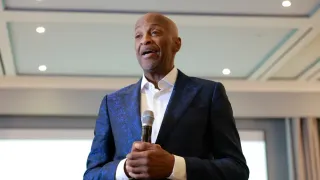June 19, 2019
Cracker Barrel Bars Church Event Over LGBT Execution Remarks
READ TIME: 1 MIN.
Cracker Barrel says it won't host an event by a Tennessee church whose pastor was a detective who preached that the government should execute gay people.
Cracker Barrel said Tuesday on Twitter that it's not affiliated with All Scripture Baptist Church or its pastor, ex-Knox County sheriff's Detective Grayson Fritts. Cracker Barrel said it disagrees with their statements of hate and divisiveness and the June 29 event won't be allowed at the restaurant.
Cracker Barrel's response follows a letter Tuesday from Tennessee Democratic Party Chairwoman Mary Mancini about the church's planned event at its Cleveland, Tennessee, restaurant.
Fritts has said his beliefs didn't affect his work in the sheriff's office. He took a buyout and no longer works there. District Attorney Charme Allen is reviewing pending cases investigated by Fritts.






